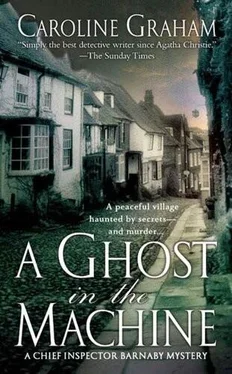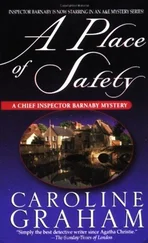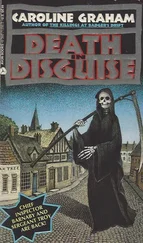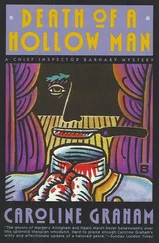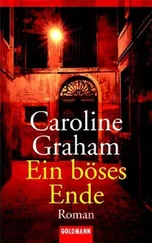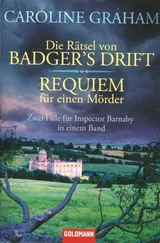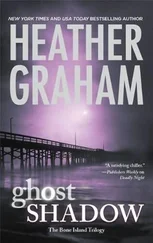And that was that, more or less. Amazing how it never fails. People are rarely suspicious if you call them by their name. Which is incredible when you think how easy it is to get hold of a person’s name – and all their other details come to that.
He explained he had nearly an hour to kill before an appointment. Would she possibly be kind enough…awful cheek, really…to have some coffee with him?
Gilda came over all fluttery but agreed, yes she would.
After this first meeting their courtship proceeded at a slowish pace but in a very satisfactory manner. She was lonely and vulnerable. Andrew, an expert in the art of seduction, played the part of an affectionate friend. Only gradually, as their meetings became more frequent, was he seen to be falling in love.
Meanwhile, between times, he worked on his cover story. He was staying with an ex-colleague while looking for a house, having sold his London flat in the Barbican. His business was property development, mainly on the coast of Southern Italy and in Capri. Rather more glamorous than Spain and not quite so easy to check up on.
He managed to get a five-thousand-pound loan from his bank. Dumping the Fiesta, he hired a smarter car and began to wine and dine Gilda. He bought one beautiful suit and prayed it wasn’t money down the drain. He met her father and disliked him on sight.
There are all sorts of self-made men and Charlie Berryman was the sort who rubbed your nose in it. Within the first ten minutes you knew more about his humble beginnings than was almost decent. You knew about his contempt for the silver spoon brigade, equalled only by that for the spongers and creepers and crawlers at the bottom of the heap. As for the so-called asylum seekers – cram ’em in a ship with all the layabouts and do-gooders, tow it out to sea and blow the lot to smithereens.
His face was as ugly as his opinions and almost as ugly as his furniture. Andrew, knowing how much hung on this foul creature’s opinion of him, tried to be pleasant without appearing ingratiating. He nodded and smiled from time to time and occasionally exchanged affectionate glances with Gilda. He felt almost fond of her at that moment, and certainly sympathetic. What a life, he thought, growing up with this God-awful cretin. It’s remarkable she’s as nice as she is.
When he judged the time to be right – i.e. when he was down to his last two hundred quid – Andrew proposed. Gilda radiantly accepted, her happiness palpable. So much so that Andrew had to make quite an effort to detach himself emotionally. Such joy made him quite uncomfortable.
Quickly summoned to Mount Pleasant, as he approached the house he heard, through an open window, Berryman bellowing and Gilda weeping. She cried out: “You do…you know you do…every time…”
Andrew rang the bell. It was almost ten minutes before the door was opened. Berryman jerked his head, walked back into the huge, thickly carpeted hall and stood leaning on a marble table with one hand inside his jacket, resting against his chest like Napoleon. Behind him a job lot of large, gilt-framed oil paintings – mayors, aldermen or other civic worthies – lined the walls of the stairwell. No doubt one was meant to assume they were Berryman’s ancestors. If it hadn’t been such a crucially important moment in his life Andrew would have laughed in the man’s face.
“Mr. Berryman.”
“I understand you want to marry Gilda.”
“Yes. I promise to try—”
“And I can promise you something, sunshine. The day you marry her is the last day she gets a penny out of me. Alive or dead. And that goes for you an’ all.” His speech finished, he stood there, watching Andrew closely.
Andrew could see, in spite of the belligerence of his words, that Berryman wasn’t really angry. His eyes sparkled with spite, his lips kept tweaking at the corners into a grin.
Andrew fought to keep his expression blank while his mind ran around like a rat in a cage. Was Berryman’s threat truly meant? Would he hold fast to it if Gilda defied him? Or was it bluff – designed to test his, Andrew’s, motives?
Memory spoke and he suddenly heard Tania talking about Gilda’s boyfriends. “She’d go out with them for a bit but then something always went wrong.” This is it, thought Andrew. This is what goes wrong.
So, what to do now? He wouldn’t let go – not at this stage. He had made an investment, both serious and costly, in his future. He couldn’t abandon it – he couldn’t go back to the costive blood-letting jobs in hellish offices for rotten money. Or dreams and schemes that fate decided would always be stillborn. He would call the bastard’s bluff and play the cards as they came.
“I don’t want your money, Mr. Berryman. I want Gilda. I love her.”
He heard a soft, plaintive cry then, a little whimper from behind a door, half open at the far end of the hall. She must have been standing there all the time.
“My daughter’s got expensive tastes.”
“I’ll look after her.” Andrew, about to run expressively on, checked himself. Quit while you’re ahead, boyo. While you can still sound sincere.
“You’ll have to look after her. ’Cause I shan’t lift a bloody finger.”
“Frankly, Mr. Berryman,” said Andrew, “I don’t give a damn.”
At this Gilda had come charging across the shag pile and into his arms. Then she turned and seared the distance between herself and her father with a hate-filled glance.
He bared his teeth and said, “Plenty of time.”
Gilda wanted the date set straight away. The earliest the registrar’s offices were available was in one month less three days; as it happened, Andrew’s birthday. He returned to the bank in Causton for another loan. Unsurprisingly, as he had made not a single repayment on the previous one, it was refused. He explained that the present application was for wedding expenses and mentioned the bride’s name. Magic! The forms materialised as if conjured from the air, as did a cup of Earl Grey and some chocolate Bath Olivers, or would he rather have a sherry? Andrew chose the sherry, agreed that five thousand pounds was nothing for a wedding these days and accepted double.
Afterwards he stood on the pavement in Causton High Street and seriously considered doing a runner. He was ten grand up and he still had the suit. Within days, if not hours, the money would start seeping out of his wallet on its way to enrich caterers, florists, printers and car-hire merchants. And all for nothing. Wasn’t it?
Andrew bought a copy of The Times and slipped into the Soft Shoe Café for a cappuccino and a bit of a think. He had gambled all his life. As a child he could not even play conkers without betting on the outcome. Now here he was at the last crap table in town.
The choices were limited. He could risk going through with the whole grisly procedure, betting on a change of heart from Berryman once he realised Gilda was getting married anyway, even without a penny piece to her name. He could go through with it accepting that Berryman might well not come round for a very long time, if at all. Unless…weren’t grandchildren supposed to heal rifts of this nature? At the very thought Andrew’s lips congealed. He nearly regurgitated his coffee. There would be no children. He loathed children. Final option, he could just scarper.
Even as he brought this idea forward Andrew knew it was a no-no. He had never, ever been this close to this much money in his whole life and he knew the odds against it happening again were astronomical. So he went along with it, admired invitation cards embossed with silver bells and ribbons, discussed the merits of mignonette as opposed to gypsophila to accompany pink rosebuds, and struggled to stay awake as Gilda went in and out of fitting rooms wearing various outfits, size eighteen. When he proposed, she had been a sixteen but every day since, she admitted coyly, had somehow added a pound or two of sheer happiness. In the few hours she had to spare they looked at houses.
Читать дальше
